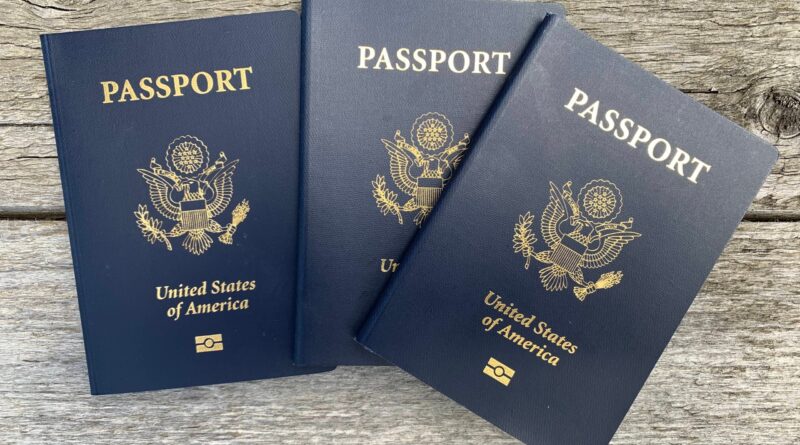Guide to the 6-month passport rule — what is it? – The Points Guy
It may sound trivial, but one of the best rules you can follow as an international traveler is to remember to check your passport validity before you book flights and hotels.
Why? Because the requirements for entry differ from country to country. In the midst of planning my 2024 travel, I realized my U.S. passport expires in April, which could mess with my plans abroad.
Thankfully, I use a travel checklist to avoid disruptions to my travel itinerary.
I immediately started the passport renewal process online and had my photo taken at my local Walgreens — although you can DIY your passport photo if you prefer — so I could send out my application as quickly as possible. I also opted to expedite the processing time for an additional $60 fee and sent my application on its way.
If you’re also in the middle of planning 2024 travel or simply want to know the ideal time to begin getting ready to renew your passport, the TPG team has you covered.
We collected information from the U.S. Department of State website and the United Kingdom’s government website to create a one-stop cheat sheet examining a range of nations that typically require you to have a passport that lasts longer than your trip — whether by one, three or six months.
Note that certain countries deviate from the standard six-month requirement. These findings are also only related to passport validity dates — we’re not covering visa requirements here. Those can vary depending on where you’re going and where you’re coming from.
Schengen countries in Europe
Many European countries are signers of the Schengen Agreement. As a result, they follow the 3+3 Rule, meaning your passport must be valid for three months beyond your three-month entry visa or for a total of six months, regardless of the duration of your initial stay.
While some Schengen countries only require passports to be valid for three months beyond your intended stay, others assume you may stay the full 90 days of your visa validity — thus the six-month time period.
Daily Newsletter
Reward your inbox with the TPG Daily newsletter
Join over 700,000 readers for breaking news, in-depth guides and exclusive deals from TPG’s experts
The signers of the Schengen Agreement are Austria, Belgium, the Czech Republic, Denmark, Estonia, Finland, France, Germany, Greece, Hungary, Iceland, Italy, Latvia, Liechtenstein, Lithuania, Luxembourg, Malta, the Netherlands, Norway, Poland, Portugal, the Slovak Republic, Slovenia, Spain, Sweden and Switzerland. Bulgaria and Romania will join the group March 31, 2024.
The countries listed below abide by the usual six months of passport validity unless otherwise noted.
Non-Schengen countries in Europe, Asia and the Middle East
Abide by the usual 6 months of passport validity
- Bahrain
- Bangladesh
- Bhutan
- Bosnia-Herzegovina
- Brunei
- Cambodia
- China
- Indonesia
- Iran
- Iraq
- Israel
- Jordan
- Kuwait
- Kyrgyzstan
- Laos
- Malaysia
- Maldives
- Mongolia
- Myanmar
- Nepal
- New Caledonia
- North Korea
- Oman
- Pakistan
- Qatar
- Saudi Arabia
- Singapore
- Sri Lanka
- Tajikistan
- Thailand
- East Timor
- Turkmenistan
- Turkey (British passports must be valid for at least 150 days from the date you arrive in the country)
- United Arab Emirates
- Vietnam
- West Bank/Gaza Strip
- Yemen
Passport must be valid 3 months beyond the scheduled departure date
- Albania
- Belarus
- Croatia
- Kazakhstan
Passport must be valid 1 month beyond the date of your intended stay
Passport only needs to be valid for the proposed duration of your stay
Africa
Abide by the usual 6 months of passport validity
- Algeria
- Angola
- Botswana
- Burundi
- Cameroon
- Central African Republic
- Chad
- Cote d’Ivoire
- Democratic Republic of the Congo
- Djibouti
- Equatorial Guinea
- Egypt
- Eritrea
- Ethiopia
- Gabon
- Kenya
- Madagascar
- Malawi
- Mauritania
- Morocco (British passports must be valid for at least three months on the date of entry)
- Mozambique
- Namibia
- Rwanda
- Sao Tome and Principe
- Somalia
- South Africa (passports must also have 30 days beyond your intended date of exit from the country)
- South Sudan
- Sudan
- Tanzania
- Uganda
- Zambia
Canada, Mexico and the Caribbean
Abide by the usual 6 months of passport validity
- Antigua and Barbuda
- Dominican Republic
- Grenada
- Guadeloupe
- Haiti
- Martinique
- St. Barts
- St. Kitts
- Trinidad and Tobago
Passport only needs to be valid for the proposed duration of your stay
- Aruba
- Bahamas
- Barbados
- Canada
- Curacao
- Jamaica
- Mexico
- St. Lucia
Central and South America
Abide by the usual 6 months of passport validity
- Belize
- Bolivia
- Chile
- Costa Rica
- Ecuador
- El Salvador
- Guatemala
- Guyana
- Honduras
- Nicaragua
- Suriname
- Venezuela
Passport must be valid 3 months beyond arrival
Passport only needs to be valid for the proposed duration of your stay
- Brazil (British passports need to be valid six months beyond arrival)
South Pacific
Abide by the usual 6 months of passport validity
- American Samoa
- Fiji
- French Polynesia
- Kiribati
- Marshall Islands
- Palau
- Papua New Guinea
- Samoa
- Tonga
- Tuvalu
- Vanuatu
Passport must be valid 3 months beyond arrival
Passport only needs to be valid for the proposed duration of your stay
Bottom line
When examining the rules, note that some countries have a slight distinction: They may require validity to be either six months from the date of entry or six months from the date of intended departure. For simplicity, we’ve taken the conservative approach and assumed that for any country with a six-month rule, like most of the ones above, you should ensure your passport is valid six months past the date of intended departure just in case.
Of course, the list above only includes just a few popular destinations worldwide. If your intended destination isn’t on the list, it’s always best to check with your relevant passport issuer.




